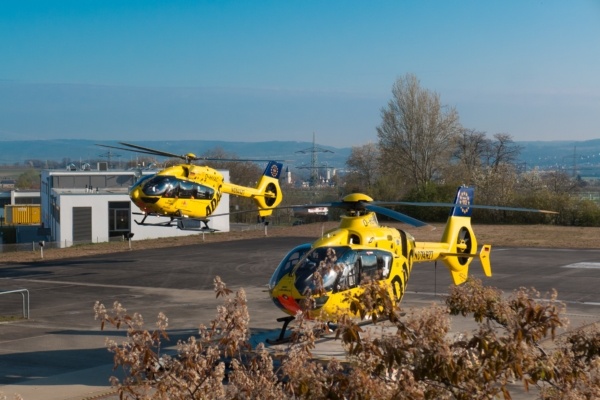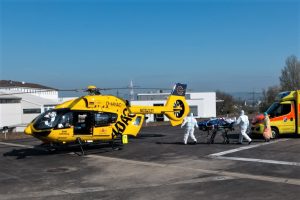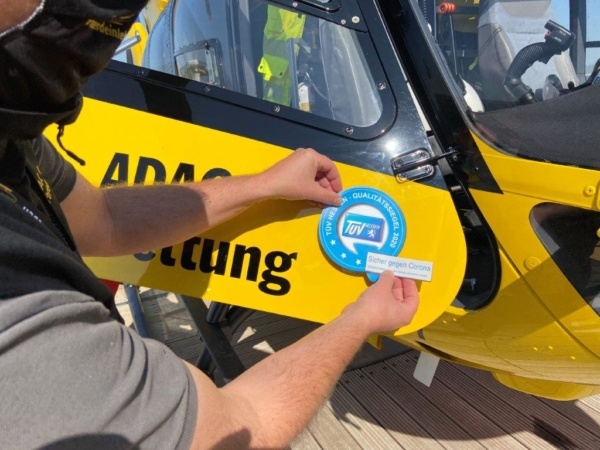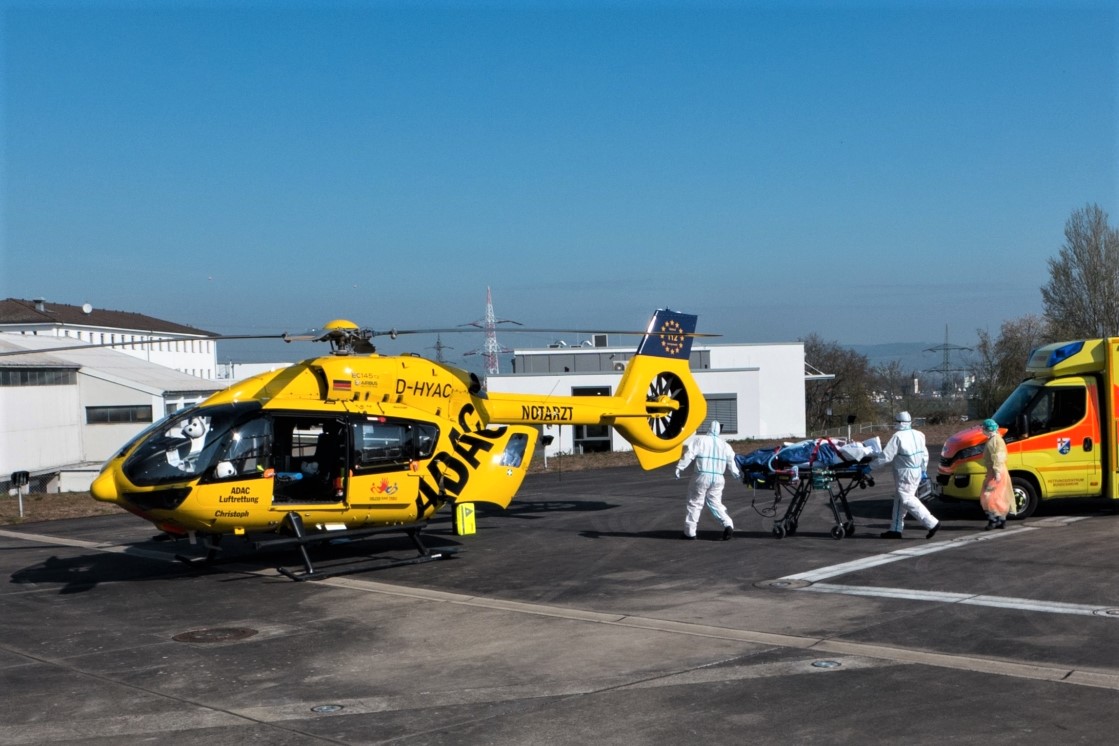
COVID-19, in Germany the response of the rescuers: the 37 ADAC Helicopter Rescue Stations on high alert
COVID-19, not only Italy: the second wave of coronavirus is occurring in many countries, especially in Europe. This is the case in Germany, where the air rescue service is intensifying its activities: ADAC Air Rescue has adopted protocols that allow complete coverage of the territory. Phase 1, in this, has been instructive.
“The currently growing number of COVID-19 infections – German rescuers say – is also being observed with concern at ADAC Air Rescue.
The coronavirus is once again calling the non-profit organization in Munich to great challenges.
“The air rescue service is currently fully insured in Germany,” stresses CEO Frédéric Bruder.
“With the experience of the first wave, we are best prepared for the increase of COVID-19 transfer flights.
We transport our patients, whether they have COVID-19s or not, as usual safely and reliably in our helicopters”.
COVID-19 in Germany: the highest level of safety at 37 ADAC air rescue stations
 There has been praise from ADAC Air Rescue for the so-called “cloverleaf concept” of the Federal Ministry of Interior.
There has been praise from ADAC Air Rescue for the so-called “cloverleaf concept” of the Federal Ministry of Interior.
If capacity is limited, federal and state governments want to distribute Covid-19 patients in intensive care among federal states in the future.
“This is an important and correct step to prevent regional bottlenecks in the care of ICU crown patients at an early stage.
In this way, we can react better and faster to such airborne overloads than we did in the spring,” explained CEO Bruder.
The 37 ADAC Air Rescue stations currently apply the highest level of safety and very strict safety and hygiene concepts for infection-protected transport.
For this reason, ADAC Luftrettung was recently the first rescue service organization in Germany to receive the “Safe against Coronavirus” seal of quality from TÜV Hessen.
No one except the crews, each consisting of a pilot, an emergency doctor, and a paramedic, currently has access to air rescue stations.
Rescuers in Germany, the expenses for protection from COVID-19 have multiplied exponentially
 There is a consistent minimization of contact within the crews.
There is a consistent minimization of contact within the crews.
To protect them, as well as patients in action and on the ward, from the disease, expenditure on protective suits, masks, and goggles as well as disinfectants has increased from about 20,000 euros per year to over 1.2 million euros since the outbreak of the pandemic.
To protect crews – and thus maintain emergency medical care for the population – so-called plasma ionizers are now also used for air purification in the ADAC HEMS Academy, the education and training center for helicopter pilots, emergency doctors, and paramedics in Bonn-Hangelar.
Germany: Due to COVID-19 infections, there have been no consequences for operational readiness to date
 Current developments are analyzed daily at ADAC Luftrettung to make any necessary process adjustments or investments immediately.
Current developments are analyzed daily at ADAC Luftrettung to make any necessary process adjustments or investments immediately.
In coordination with the parent company of ADAC Luftrettung, the non-profit ADAC Foundation, funds were made available at the beginning of the pandemic to make advance payments quickly and pragmatically and to make all unforeseen investments necessary to maintain the air rescue service with the usual flight and patient safety.
In the highest phase of the pandemic from mid-March to the end of June, the flying yellow angels had flown about 450 corona missions and provided cross-border aid with special relocation transports from France, and supported the Bundeswehr in its aid to Italy.
To create additional capacity for emergencies and intensive care transfers, the “Christoph 112”, the first national alert and intensive care transport helicopter, was stationed in Ludwigshafen in mid-April.
Thanks to its equipment, the “Christoph 112″ is ideal for transporting patients with serious lung diseases and can therefore be used for intensive care transfers of crown patients who also need ventilation during the transfer.
In Bavaria, Hesse, and Rhineland-Palatinate, the flying yellow angels have also trained the police helicopter squadron on special hygiene measures for transporting infections.
Covid-19 patients can now also be transported by the police in an emergency”.
Read Also:
Hems, Germany ADAC Luftrettung Publishes Multicopter Study / PDF


